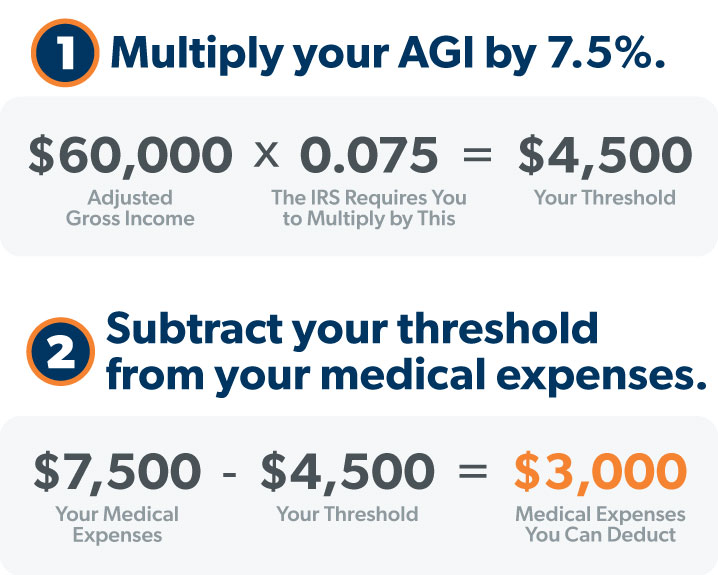
Introduction to Health Insurance and Its Tax Benefits
In the ever-evolving financial landscape, health insurance holds a significant position. Not only does it provide essential coverage for unpredictable medical expenditures, but it also brings noteworthy tax returns benefits.
What is Health Insurance and why is it important?
Health insurance is an essential safeguard against financial hurdles arising from health emergencies or routine medical costs. It’s a vital financial net that ensures peace of mind and financial stability, thereby playing a crucial role in one’s financial planning.
Tax benefits of having Health Insurance
In addition to its primary function, another added advantage health insurance offers is in the form of tax benefits. Any premiums paid towards a health insurance policy can be deducted from your taxable income, contributing to significant savings during the tax season. It’s a win-win situation— not only are you safeguarding your health, but your wealth too!

Qualifying for Health Insurance Tax Deductions
When it comes to filing your tax return, did you know that having health insurance can actually benefit you financially? Here are some key points to understand about health insurance tax deductions.
Income thresholds for health insurance deductions
To qualify for health insurance tax deductions, your Modified Adjusted Gross Income (MAGI) must fall within certain thresholds. These thresholds vary depending on your filing status – whether you file as an individual, married filing jointly, or head of household. It’s important to understand these income limits to determine if you are eligible for deductions.
Types of health insurance plans that qualify for deductions
Not all health insurance plans are eligible for tax deductions. Only certain types of plans meet the requirements. Generally, employer-sponsored plans, individual plans purchased through the Health Insurance Marketplace, and government programs like Medicaid and Medicare qualify for deductions. It’s worth noting that premiums paid for long-term care insurance and certain qualified small employer health reimbursement arrangements can also be deducted.
By understanding the income thresholds and types of health insurance plans that qualify for deductions, you can make informed decisions when filing your tax return. Keep in mind that tax laws and regulations can change, so it’s always a good idea to consult with a tax professional or review the latest IRS guidelines for the most accurate and up-to-date information.
Health Insurance and Medical Expenses
Health insurance is not only crucial for your well-being, but it can also have a positive impact on your tax return. By understanding the tax benefits associated with health insurance, you can potentially reduce your tax liability and save money. Here are two key points to consider when it comes to health insurance and your tax return.
Deductible medical expenses
If you have incurred significant medical expenses during the tax year, you may be able to deduct them from your taxable income. This includes expenses such as doctor visits, hospital stays, prescription medications, and certain medical procedures. However, it is important to note that your total deductible medical expenses must exceed a certain percentage of your adjusted gross income (AGI) before you can claim the deduction. Consult a tax professional or refer to the IRS guidelines for the specific requirements.
Health insurance premiums and tax deductions
In some cases, you may be eligible to claim a tax deduction on your health insurance premiums. This typically applies to self-employed individuals or those who do not have access to employer-sponsored health coverage. By deducting your health insurance premiums, you can reduce your taxable income and potentially lower your tax liability. However, there are certain criteria that must be met, including having a net profit from self-employment or not being eligible for other health insurance coverage. It is advisable to consult with a tax professional to ensure you meet all the requirements for this deduction.
With proper knowledge and understanding of the tax benefits associated with health insurance, you can take advantage of potential deductions and maximize your tax return savings. Be sure to keep detailed records and consult with a tax professional to ensure you are making the most of the available tax benefits.
Health Insurance Tax Forms and Documentation
Tax forms related to health insurance
When it comes to filing your taxes, it’s important to understand the role that health insurance plays. Here are some tax forms you should be aware of:
- 1095-A: If you purchased your health insurance through the Marketplace, you will receive Form 1095-A. This form provides details about your coverage and the premium tax credit you may be eligible for.
- 1095-B: This form is typically provided by insurance companies, government programs like Medicaid, or employers who offer self-funded plans. It confirms your health coverage for the tax year.
- 1095-C: If you are employed and your employer offers health insurance, you will receive Form 1095-C. This form outlines the coverage offered to you by your employer and any premium assistance received.
Important documents to keep for tax purposes
In addition to the tax forms mentioned, there are other important documents related to health insurance that you should keep for tax purposes:
- Premium payment records: Keep records of your health insurance premium payments, whether through your employer or individual coverage. These records help verify your eligibility for certain deductions or credits.
- Medical expense receipts: If you incurred any out-of-pocket medical expenses, such as doctor visits or prescription costs, retain the receipts. These expenses may be deductible if they exceed a certain percentage of your income.
By understanding the various tax forms and keeping the necessary documentation, you can ensure accuracy when filing your taxes and potentially benefit from tax credits or deductions related to your health insurance.
Other Tax Benefits of Health Insurance
Health Savings Accounts (HSAs) and tax advantages
Health savings accounts (HSAs) offer individuals with high-deductible health insurance plans a way to save money for medical expenses while receiving certain tax advantages. Contributions to an HSA are tax-deductible, similar to contributions to an individual retirement account (IRA). The money in the HSA can be used to pay for qualified medical expenses tax-free. This can help reduce your taxable income and potentially lower your overall tax liability.
Tax credits for purchasing health insurance through Affordable Care Act marketplaces
If you purchase health insurance through the marketplaces established by the Affordable Care Act, you may be eligible for premium tax credits. These tax credits can help lower the cost of your health insurance premiums, making coverage more affordable. The amount of the tax credit is based on your income and family size. It is important to note that you must meet certain income requirements and enroll in a qualified health plan to be eligible for these tax credits.
In conclusion, health insurance not only provides financial protection against medical expenses but also offers additional tax benefits. By taking advantage of health savings accounts and tax credits available through the Affordable Care Act, individuals can potentially lower their tax liability and make healthcare more affordable. It is important to consult with a tax professional or financial advisor for personalized advice regarding your specific situation.
Conclusion
Health insurance can have a significant impact on your tax return. By understanding the tax benefits associated with health insurance, you can make informed decisions that can reduce your tax liability and potentially save you money. Remember to keep track of your health insurance expenses, including premiums, out-of-pocket costs, and any eligible deductions or credits. Consult with a tax professional if you have any questions or need assistance navigating the complex tax laws. Taking advantage of health insurance benefits can provide both financial security and peace of mind, ensuring that you are well-protected and prepared for unexpected medical expenses.
Overall impact of health insurance on tax returns
- Deductions: Health insurance premiums paid with after-tax dollars may be tax-deductible, potentially reducing your taxable income.
- Tax credits: Depending on your income level and eligibility, you may qualify for tax credits, such as the Premium Tax Credit (PTC) or the Health Coverage Tax Credit (HCTC), which can directly lower your tax liability.
- Health Savings Accounts (HSAs): Contributions to HSAs are tax-deductible, and withdrawals used for qualified medical expenses are tax-free, providing additional tax advantages.
Final thoughts and considerations
When it comes to tax season, it’s essential to understand how health insurance can impact your tax return. Educate yourself on the available deductions, credits, and savings accounts related to health insurance. Keep accurate records and consult with a tax professional for personalized advice. By maximizing your health insurance benefits, you can potentially reduce your tax burden and optimize your financial situation. Remember, investing the time to fully understand your health insurance and tax-related options can result in significant savings over time.


